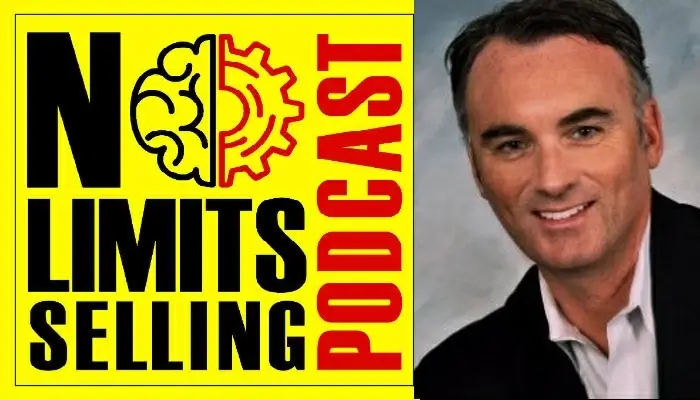
How To Get Better Results by Focusing on the Positive
John is the Amazon bestselling author of Winning the Battle for Sales: Lessons on Closing Every Deal from the World's Greatest Military Victories and Social Upheaval: How to Win at Social Selling.
A globally acknowledged Sales & Marketing thought leader, speaker, and strategist, he has conducted over 850 video interviews of thought leaders for Sales POP! online sales magazine and has a podcast channel on iTunes with over 750 audio interviews. He is Chief Marketing & Strategy Officer at Pipeliner CRM and was formerly CEO of Huthwaite and Omega Performance. In his spare time, John is an avid Martial Artist.

Contact John:
[EDITOR’S NOTE: This podcast is sponsored by No Limits Selling. It is a fun, fast-paced podcast that delivers hard-fought business advice that you can implement today to improve your sales and performance]
Interested In Our Real Estate Coaching Services? Explore Our Website: Link
Feeling Not Well Today? You Can Use Our Mindset Boosters App To amp Up Your Mood: Link
Find us on Social Media:
LinkedIn | Facebook community | Instagram
Like what do you listen to? Subscribe to our podcast!
Ready to become fearless? We can help you become fearless in 60 days so you accomplish more in your career Schedule A 15 min Call with Umar
Summary
In a recent podcast hosted by Umar Hameed on No Limits Selling, John Golden, the publisher of SalesPOP! Magazine, shared his insights on the world of sales, the role of sales managers, and the difference between A and B players in the sales industry.
The A and B Players in Sales
Golden believes that the key difference between A and B players in sales lies in their focus on the process. Players are process-focused, adhering to the sales process and concentrating on the fundamentals. They plan their calls meticulously, focus on the most important activities, and are conscious of their time.
Players also demonstrate high levels of business acumen. In today's world, understanding how business works is crucial for salespeople. They need to understand not only their own business but also the business of their buyers. This understanding allows them to have intelligent conversations with prospects and to truly understand their needs.
The Role of Sales Managers
Golden also discussed the role of sales managers, emphasizing that they should focus on the early stages of the sales process. By ensuring that opportunities are properly qualified, sales managers can help their teams be more effective and avoid chasing deals that are unlikely to work out.
Sales managers should resist the temptation to become super closers. Instead of elbowing their way into deals and undermining the work of their salespeople, they should provide support and coaching. They should also drive consistency in the sales process and ensure that their teams are following it.
The Importance of Finding Your 'Why'
Golden also touched on the importance of finding your 'why' as a sales leader. He believes that understanding your purpose and motivation can help you be more effective in your role.
Conclusion
Golden's insights provide valuable lessons for anyone in the sales industry. His emphasis on process, understanding, and support highlights the importance of these factors in successful sales. Whether you're a salesperson or a sales manager, focusing on these areas can help you improve your performance and achieve better results.
Questions & Answers
What does John Golden believe separates A players from B players in sales?
What does John Golden believe separates A players from B players in sales?
What role should sales managers play according to John Golden?
What is the importance of finding your 'why' as a sales leader according to John Golden?
What is the focus of the No Limits Selling Podcast?
What is SalesPOP! Magazine?
How does Golden define a super closer in sales management?
What does Golden suggest sales managers should focus on to help their teams be more effective?
Don’t miss this opportunity to transform your real estate career with one-on-one coaching. As an experienced real estate coach, I, Umar Hameed, am dedicated to helping you unlock your full potential and achieve your real estate goals. To learn more about who am I and my clients ↓
If you’re ready to take the next step, book an appointment with me today and begin your journey toward success in the real estate industry.
